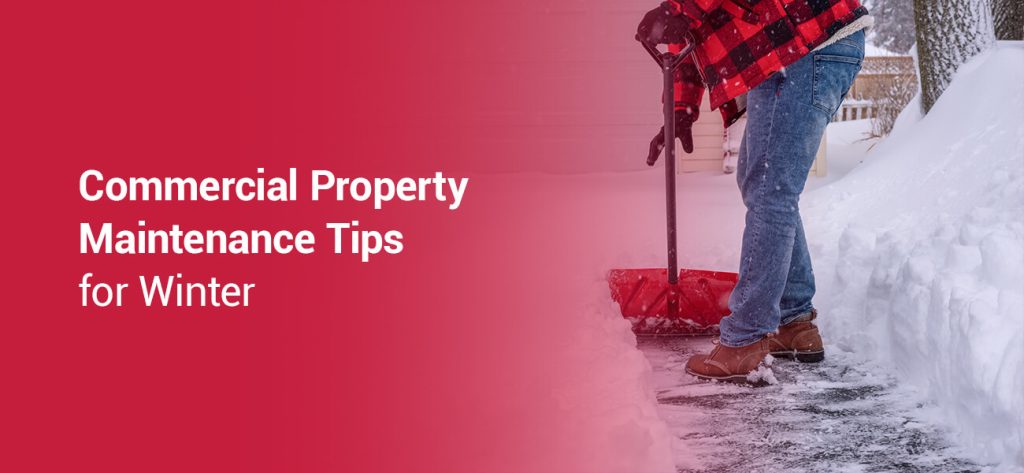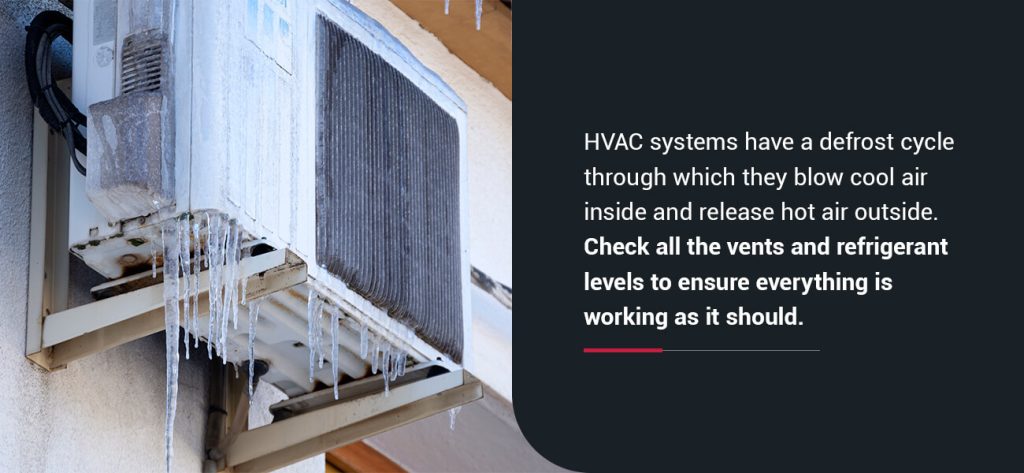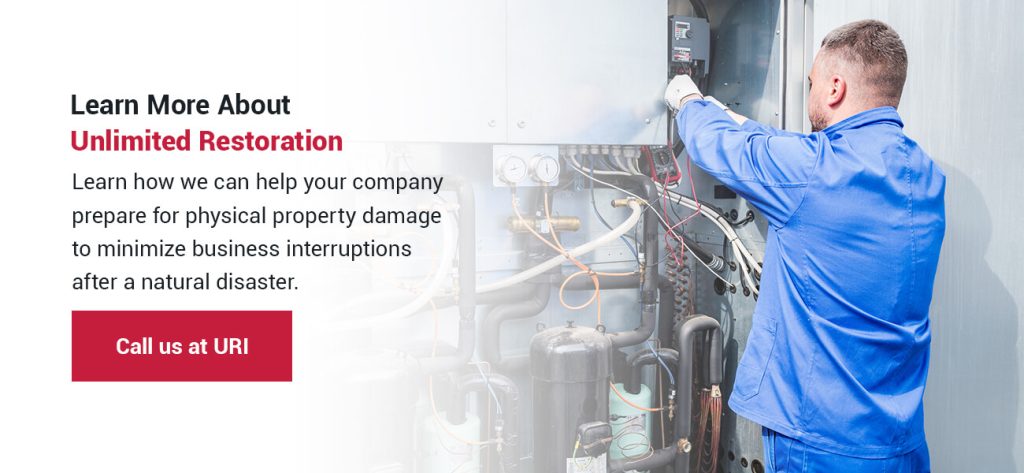
Winter can take a toll on your commercial property. Winter maintenance for your business is no small task, but you can follow these maintenance tips for commercial properties to get you ready and warm this winter.
One of the most important commercial property winter maintenance tasks is to make sure your building is well-insulated. Checking the insulation can save you money and keep customers coming back. If they feel uncomfortable and cold in your business, they will be less likely to return.
You should also carefully analyze how well your plumbing is insulated. If pipes are exposed to the cold in parts of your business, get products made specifically to insulate water pipes like sleeves, heat tape and heat cables.
Pipes freezing in the winter can cause them to expand and break. These pipes are typically exposed to the cold directly by being outside or are in unheated interior areas causing them to get too cold. However, pipes in walls without adequate insulation could also freeze. This increases the importance of appropriately insulating your building.
You can take some steps to protect your pipes from freezing in the winter. Here are the things you should do before the weather turns too cold.
If your pipes do freeze, don’t panic. Follow these steps to thaw them:

Your property’s HVAC system is also at risk for freezing during the winter months. HVAC systems have a defrost cycle through which they blow cool air inside and release hot air outside. However, if temperatures drop extremely low and the system isn’t maintained properly, it can freeze, which will cause your property to be unheated and the system itself to fail.
If your HVAC unit has any of the following signs, it is likely frozen or about to freeze.
If your HVAC unit exhibits one of those signs, begin by checking the air filter, which could be the problem rather than the cold. Check all the vents and refrigerant levels to ensure everything is working as it should. If it is frozen, get professional help to avoid needing to replace your unit and get your property warm quickly.
Your windows and doors could be causing your property to lose heat in the winter and therefore lose money. Before the cold months set in, examine the doors and windows on your property and look for gaps.
Gaps in your windows and doors let warm air out and cold air in. Your customers will feel the draft, and cold customers are less likely to come back. Seal up your windows and doors to give your customers the best experience they can get at your business.
Aside from the cold, winter also brings mud and dirt from snow and rain. Your customers and employees will come in with wet and muddy feet, and it will be harder to keep your property clean while there is snow on the ground. However, a simple solution will save you time in the long run.
Invest in some mats that can take off most if not all of the dirt on your customers’ and employees’ shoes. Rubberized mats with some grip will be best at getting dirt and dust off of shoes.
These mats can also eliminate slipping hazards, which are far more likely in the winter with melting snow and mud coming in with your customers.
Snow is inevitable in many parts of the country, and you need to plan a way for customers to reach you. Dedicate a part of your property to be a snow mound area where the plows will push the snow. Choose where to place the snow mound based on where heavy traffic areas, entrances and exits are so you don’t block them.
Check with your local laws and make sure you follow the snow removal laws in your area.

URI has worked with commercial and industrial clients since 1996, providing quality dependable emergency response and preparation for catastrophic events. Contact us today to learn how we can help your company prepare for physical property damage to minimize business interruptions after a natural disaster.